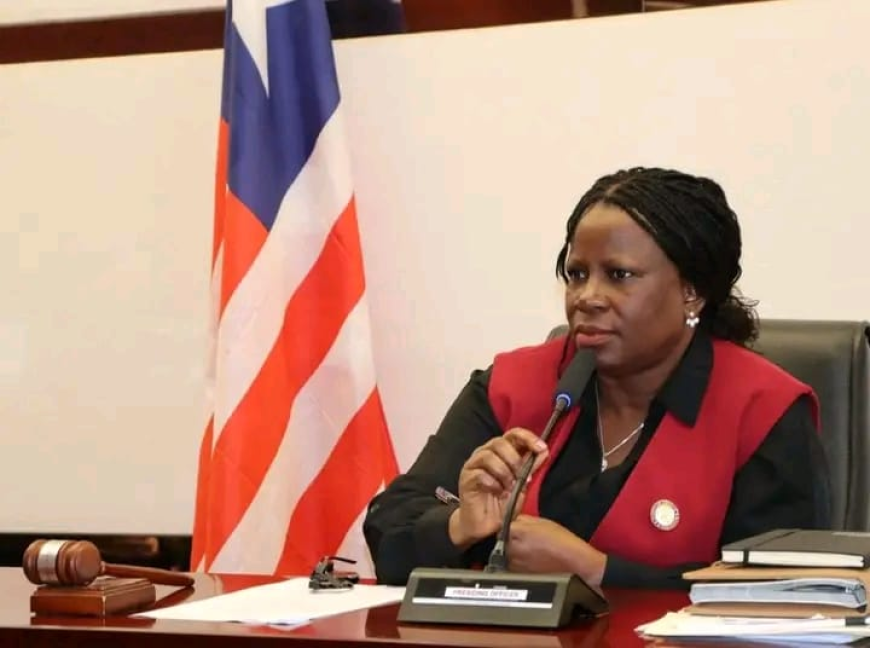Liberian Senate Brainstorm Solutions to USAID-Funded Project Cancelation Crisis

Monrovia, Liberia: The Liberian Senate is keenly brainstorming to derive an amicable solution aimed at tackling the unexpected hurdles caused by the sudden withdrawal of United States Agency for International Development (USAID)-funded projects in Liberia.
In this direction, on Monday, February 24, 2025, the Liberian Senate convened a crucial hearing to evaluate the implications of U.S. President Donald Trump’s decision and engage with affected government’s ministries, agencies, and commissions (MACs) to find a solution to the predicament.
The Senate, through its Committees on Health, Agriculture, Education, Ways, Means, Finance, and Budgeting, summoned several governments’ functionaries to provide first-hand information on the impact of the withdrawal of USAID support.
The primary objective of the Senate’s hearing is geared towards assessing the immediate and long-term consequences for Liberia’s development sectors.
During the hearing, heads of MACs outlined the severity of the halting of financial support to the USAID project and strategy to mitigate the devastating impact caused by the withdrawal.
At the Senate’s hearing, Finance Minister Augustine Kpehe Ngafuan told the Senate that Liberia must now prepare for a complete cancellation of USAID support beyond the initial three-month suspension announced by the U.S. government.
According to Minister Ngafuan, more than ten major USAID-funded projects, valued at over a whopping US$118 million, have already been cancelled.
These cancellations, according to the Finance Minister, have negatively impacted government institutions in critical areas such as health, education, elections, and domestic revenue mobilization.
Other developmental initiatives affected by the departure of USAID support include Architecture, Engineering, and Construction Oversight Services for Water and Health Infrastructure with a value of US$2.9 million and the Community-Led Monitoring Project with a cost of US$185,000.
The Education System Strengthening Project amounting to US$23.4 million, the Elections and Democracy Initiative costing UD$15.9 million, and the Local Empowerment for Accountability and Decentralization (LEAD) Project valued at US$17.9 million are also part of projects affected by the cancellation of the USAID sponsorship initiative.
The public hearings follow the Senate Plenary’s decision on February 4, 2025, which mandated relevant committees to work with government MACs to explore avenue-aimed financing solutions to the situation.
This Senate’s decision was triggered by joint communication from Gbarpolu County Senators Amara Konneh, Senator Milton Gbezohngar Findley of Grand Bassa County, Senator Abraham Darius Dillon of Montserrado County, and opposition Senator Augustine Chea of Sinoe County, respectively.
In concurrence, the Senators emphasized the urgent imperative to reassess Liberia’s budgeting and development financing strategies.
USAID, established in 1961 by U.S. President John F. Kennedy, has played a critical role in global development with far-reaching impacts in Liberia, particularly in health, education, and governance.
However, shifts in U.S. foreign aid policies under Trump’s administration have raised concerns, particularly with the agency’s 90-day freeze and pending revision of numerous projects worldwide in alignment with the “America First” agenda.
Senate Pro Tempore Nyonblee Karnga Lawrence and Committee Chairperson, Senator Debah Varpilah from Grand CapeMount County, are heading a rigorous process to find a sustainable path forward.
The Senate has also requested the Ministry of Finance to submit a comprehensive analysis report to help inform the next steps.
In addition, the Ministries of Education and Health have been asked to return for further hearings, when the Health Minister, Dr. Jarso Maley Jallah, is expected to provide a more detailed assessment.
As the Liberian Senate continues to deliberate on finding solutions for a freeze on USAID-funded projects, stakeholders are craving a collaborative approach to mitigate the impact of the USAID shutdown and ensure continuity in essential services for the Liberian people.
Edited: E. Geedahgar Garsuah, Sr.
What's Your Reaction?








































































